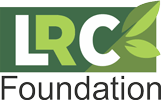What we do
While the importance of agricultural knowledge, information and skills to increase productivity of farms has been widely recognised, few concrete steps have been taken undertaken to strengthen VET and extension systems on the African continent and to offer quality VET and extension services to farmers on a wider scale.
This can be attributed to limited financial resources, wrong setting of priorities by decision makers, inadequate policies in place or the lack of know-how on how to develop and improve knowledge and information systems for Africa’s agricultural sector.
The same applies for the optimisation of value chains. Stakeholders all agree on the importance of using holistic approaches that includes interventions along entire value chains but the impact of these interventions is limited.
Having the ambition of becoming an African Hub for the preparation, exchange and dissemination of knowledge, skills and information drawn from practice and research and to forge linkages between stakeholders in the agricultural sector the LRC Foundation has identified 3 strategic goals the foundation will work on during the course of the next 5 years:
1. Farmers have access to high quality ATVET and Extension services.
Based on the experiences made by the Latia during the last 10 years the LRC Foundation develops and promote innovative new models of dual VET education and provision of extension services for young African farmers.
To be able to reach higher numbers of farmers the Foundation will strengthen its emphasis on digital learning, develop digital training modules and set up a digital information platform that includes the provision of information on service providers and markets, the access to technical briefs and discussion fora.
Digital learning will be linked with dual education models.
The Foundation will also contribute to improving the learning environment (infrastructure, training materials, equipment’s, etc.) of selected ATVET Colleges and training farms and strengthen their institutional and management capacity to deliver relevant quality ATVET and extension services.
The LRC Foundation will forge new partnerships with 3 – 5 new or existing ATVET providers.
Finally, the Foundation will put a special emphasis on setting up a system for the professional development of ATVET teachers and extension officers

2. Optimized value chains impact positively on farmers income and food security.
LRC will identify and contribute to the elimination of bottlenecks of 5 selected value chains.
Livestock and horticulture have already been identified to be among the 5 VC, others have yet to be identified.
The LRC Foundation will systematically analyse the production, processing, marketing and retail/consumption functions of these VCs and also their sub-functions such infrastructure, input supply, research & development, coordination and skills and capacity development.
Such analysis also include identification and assessment of key actors along these value chains.
The foundation will then facilitate linkages among these actors, provide them with information and training, and link them to existing platforms or set up additional platforms for these actors to directly interact.

3. Applied research contributes to increased agricultural production.
Special emphasis will be put on testing, demonstrating and disseminating climate smart agricultural technologies and management practices that have been developed by reputable research agencies and private companies in Kenya or elsewhere.
The accent here will be put on water management (irrigation techniques, aquaponics, water quality, etc.) and on dry lands management and the integration of fodder (production and feeding of animals) into livestock value chains.
Demonstration plots will be set up either at colleges or among model farms.

